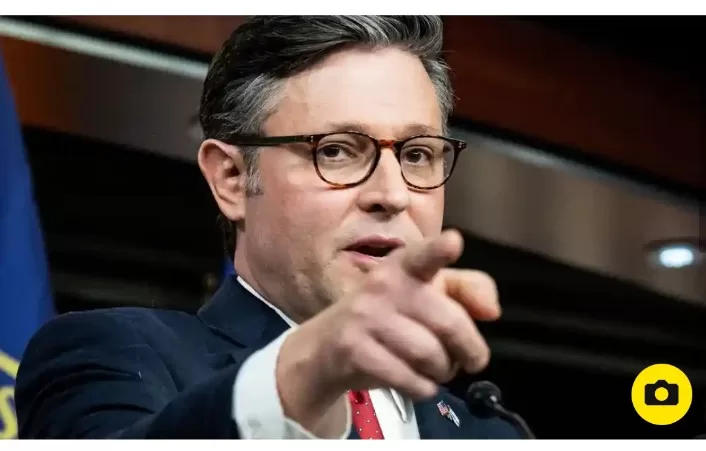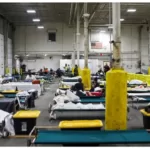In a recent interview with CNBC’s Squawk Box, House Speaker Mike Johnson expressed his views on the separation of church and state, labeling it a “misnomer” and asserting that the public’s understanding of this fundamental concept in American governance is a “misunderstanding.” Johnson argued that the founding fathers intended to prevent government interference with religion rather than the other way around.
Speaking from the US Capitol, Johnson referenced Thomas Jefferson’s 1802 letter to the Danbury Baptist Association of Connecticut, stating, “The separation of church and state is a misnomer. People misunderstand it. Of course, it comes from a phrase that was in a letter that Jefferson wrote. It’s not in the constitution.”
Jefferson’s letter emphasized a robust separation of church and state, reflected in the establishment clause of the first amendment, stating that Congress should “make no law respecting an establishment of religion, or prohibiting the free exercise thereof.” Johnson’s remarks align with his broader efforts to integrate Christianity into American politics, earning him the title of the first Christian nationalist House speaker by The New York Times.
The House speaker’s religious fervor has been evident, including a public act of prayer on the House floor shortly after being sworn in. Johnson’s worldview is explicitly rooted in his faith, encouraging those interested in his perspective to “go pick up a Bible off your shelf and read it.”
Johnson’s assertion that the United States is a “biblical” republic rather than a democracy underscores his commitment to intertwining religious principles with governance. Prior to entering politics, he worked as a senior lawyer for the Alliance Defense Fund, a group later renamed Alliance Defending Freedom (ADF), known for its involvement in legal battles against LGBTQ+ rights and abortion rights.
As Johnson continues to make his mark on American politics, his unabashed fusion of religion and governance raises questions about the trajectory of the separation between church and state in the country’s political landscape.




